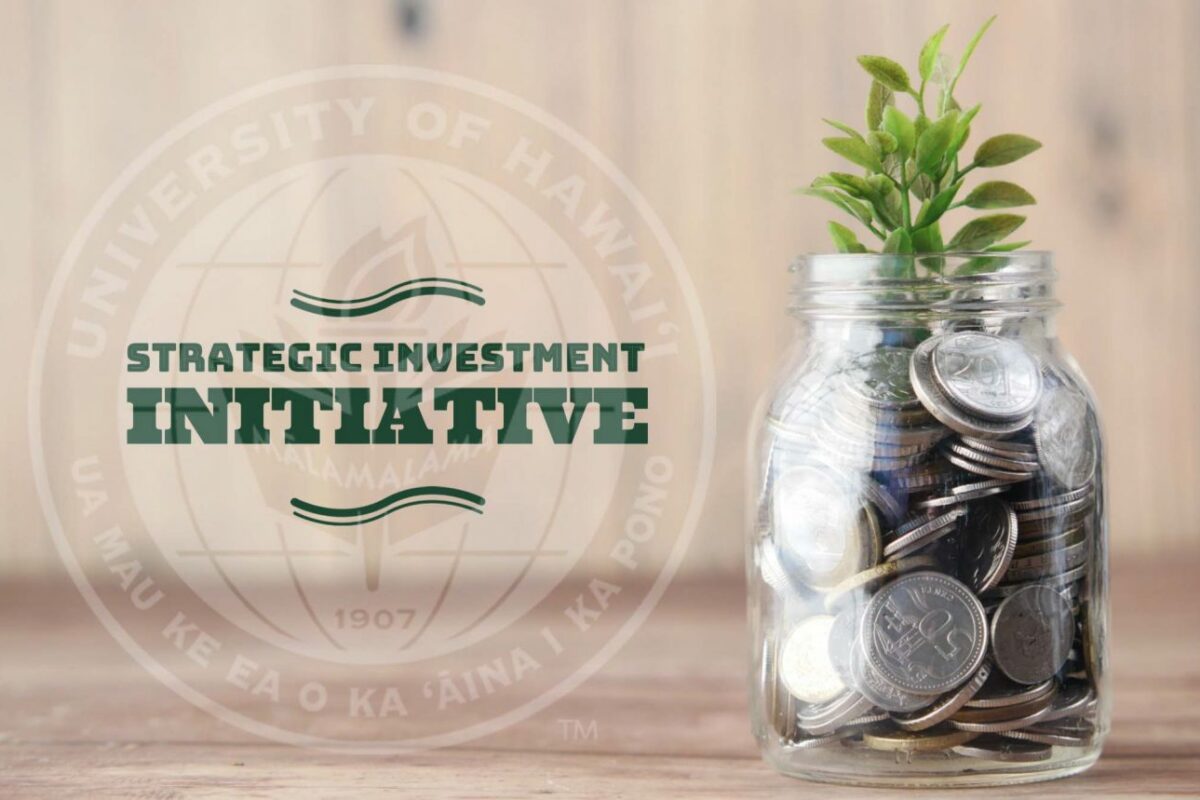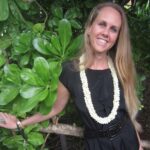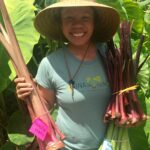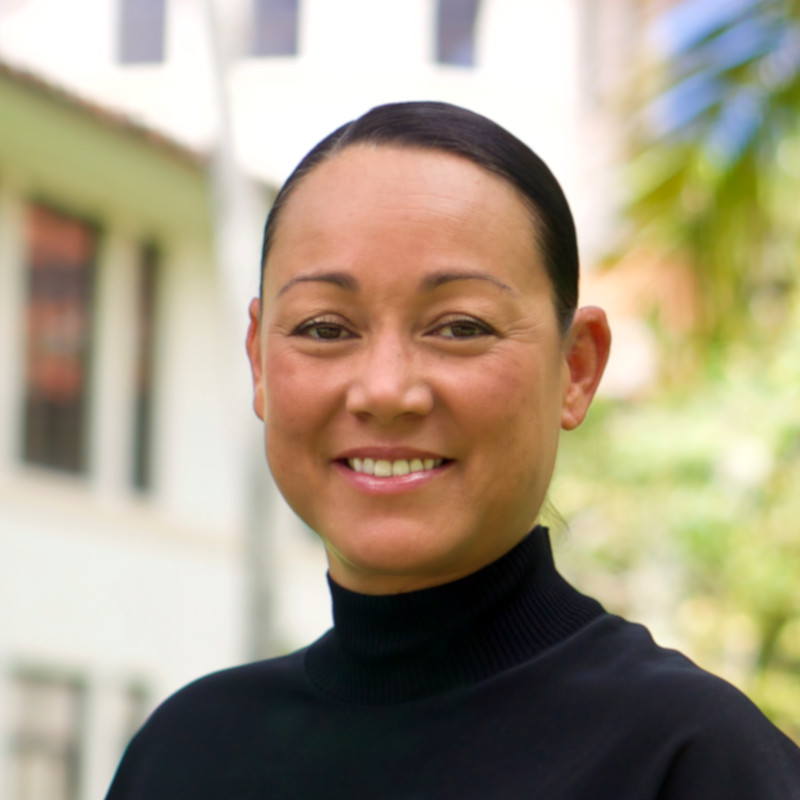
College of Education (COE) faculty members, Summer P. Maunakea and Amber Strong Makaiau, along with graduate student, Tyler Fujita, were awarded funding through Provost Michael S. Bruno’s 2022 Strategic Investment Initiative for projects addressing the physical, social, and emotional health of populations most impacted by the COVID-19 pandemic.
Finding Why: Bringing Life Design to UH Mānoa and Hawai’i High Schools, which was awarded $38,055, identifies problems and opportunities brought upon by the COVID-19 pandemic, particularly how it highlighted the role of educational institutions as sources of holistic social and emotional support for students.
In their proposal, the team explains how, each year, thousands of high school graduates enter college as “the next step” without establishing why or developing an ongoing process for self-understanding and personal wayfinding. This is especially significant for youth from disadvantaged backgrounds who may not have access to necessary personal development, career, and social-emotional supports.
“A life well lived begins with knowing ourselves, asking better questions, and making better plans,” said Fujita, MEd in Curriculum Studies student and Study Tours and Global Engagement Director for the Pacific & Asian Affairs Council (PAAC). “Our team believes that this kind of thinking is core to a good education, and we are very grateful to receive the support of the Provost in making this happen.”
The project will build and pilot a life design curriculum for Hawaiʻi students using best practices from life design, purpose education, and values education and following in the footsteps of numerous successful initiatives at higher education institutions around the world.
The goals of the project are aligned with current Strategic Investment Initiative Focus Areas, including attracting and retaining new learners; high-impact practices that support student success and close achievement gaps; and holistic support for students, faculty, and staff.
“This project is really the brainchild of Tyler and the incredible work that is coming out of the first cohort of the Progressive Philosopy and Pedagogy MEd Interdisciplinary program, which is designed for educators and scholars from diverse disciplines and contexts who are interested in building our collective capacity for creating a better future society for today’s children” said Makaiau, Specialist in the School of Teacher Education.
Objectives for the future of the project include creating a roadmap for making this opportunity available to students at all Hawaiʻi Department of Education High Schools and to lay a foundation for establishing a Life Design Institute at UH Mānoa.
Fujita, Makaiau, and Maunakea are joined by Academic Advisor Matt Eng of the Mānoa Advising Center.
Assistant Professor Maunakea was also awarded $220,200 for the Mauli Ola Initiative (MOI), which will address health disparities among groups most devastated by the COVID-19 pandemic, including Native Hawaiian, Pacific Islander, and Filipino faculty, students, staff, and their families along with UHM faculty, students, and staff with disabilities and their caregivers.
“From a Hawaiian perspective, mauli ola is not only the physical health, but also encompasses the overall well-being and balance across the realms of spiritual, physical, mental, and social well-being,” the proposal states. “To address health disparities among the focus populations, we return to ʻāina as a way to restore mauli ola.”
MOI is a response to the lessons that emerged from the COVID-19 pandemic, especially the importance of maintaining one’s well-being in order to be present for others, personally and professionally.
“The health of kānaka and the health of ʻāina are interdependent,” Maunakea said. “Funding for this project contributes to the many Kanaka ʻŌiwi efforts to heal and protect our land, waters, and people during such critical times. The water contamination crisis at Red Hill highlights the need to prioritize mauli ola and the conditions necessary to foster health and wellbeing for generations to come.”
The project aims to provide workshops for ʻohana, professional development opportunities, and an inaugural summit in collaboration with Ka‘ohinani, Hoʻōla ʻĀIna Pilipili, and other community partners. As part of the university’s commitment to being a “Native Hawaiian Place of Learning” and towards diversity, equity, and inclusion, MOI focuses on the very populations experiencing the greatest inequities.
The format for the Mauli Ola Series builds upon a successful hybrid virtual and in-person series implemented by Maunakea and the Community Learning Exchange ʻOhana Series – a collaboration with UHM, INPEACE, MAʻO Organic Farms, and Kamehameha Schools which began in 2012 and is currently sustained through organizational investment and partnership.
In addition to Maunakea, the MOI Project Team is comprised of representatives from the following units: Kimberly B. Yamauchi, Junior Specialist at the John A. Burns School of Medicine (JABSOM) Department of Native Hawaiian Health (DNHH); Sharde Freitas, Data and Policy Analyst at Center for Indigenous Innovation and Health Equity (CIIHE); Keoki Baclayon, Lāʻau Lapaʻau Instructor at Hawaiʻinuiākea School of Hawaiian Knowledge, Kamakakūokalani Center for Hawaiian Studies; Melody Halzel, PhD Student in Public Health and GA with the Center for Disability Studies; and Ka Huli Ao, Center for Excellence in Native Hawaiian Law.




